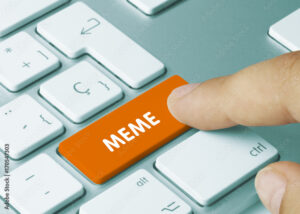Day 5: May 21: Assigned Blogpost
It’s clear this week that the world is changing and always has been and schools are having to catch up. After watching our lecture and Wasch’s talk, I have started reflecting on the fact that our classrooms are not really separate from the digital space anymore, but rather they are extensions of it. Students these days practically live on the internet. In the lecture, Katia mentioned how our reaction to new technologies really depends on when we are introduced to it. It is definitely a fact that these kids are getting exposed to smart technology, AI and social media even younger and younger.
Memes, internet slang, trends, youtube, tiktok, instagram, etc are all part of our students everyday lives. As mentioned in this weeks lecture, teen’s screen time has massively increased in the past decade, and they aren’t just consuming content, but they are also participating in the creation of it. This what Wesch calls the “culture of participation”. I think it can have both positive and negative impacts.
Ironically, there is a common meme that acknowledges when it comes across something really difficult to describe on the internet. When there are memes that have changed and mutated because they have been remixed so many times, you might see the reply “imagine explaining this to a victorian child”. LOL. I find the image pretty funny. For example, those weird italian brainrot memes. What even are those OMG. If I find it weird, imagine explaining it to a victorian child! Internet culture is always rapidly changing and evolving.
During my pre-internship last semester, I was shocked to hear six-year-olds using internet slang that my friends and I might use. Often times, these slang words have sexual or misogynistic origins. Even the children without phones are going to learn these things, because they will inevitably be exposed to it at school, from children with unlimited access. As mentioned in this lecture, there is no more parental mediation. This is our new reality.
What should we do?
We could try to fight the change, ban phones, punish the use of memes, etc. However I think that approach is all wrong and doesnt get us anywhere. There is also a good side to this participation culture on the internet. I always believe the answer is so embrace the change and go move with the tides.
In my classroom…
- I’ll incorporate memes into lessons. Not just for laughs, but to make the content more engaging and relatable to students.
- Ill help students analysize online culture. This requires critical thinking skills.
- Ill communicate with parents about what their students are being exposed to on the internet.

I wonder…
- Do you think it should be mandatory for teachers to stay up to date on online trends?







Hey Amalia, I really enjoyed your blog post! Your idea that classrooms are now extensions of the digital space is so relevant and important for us as teachers to reflect on. I completely agree that resisting technology or banning things like memes doesn’t work. Instead, embracing and analyzing them can totally lead to more meaningful engagement. Your idea of using memes to teach and spark discussion is a fun and creative way to connect with students on their level. I also appreciated your point about internet slang often having deeper roots.